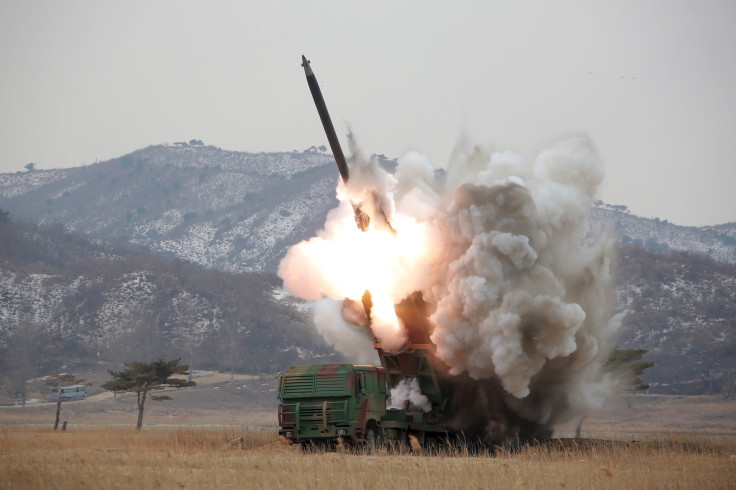North Korea Missile Test Update: Foreign Minister Ri Su Yong’s Travel In US Restricted Amid Reports Pyongyang Deployed 300 Rocket Launchers

The United States is limiting North Korean foreign minister’s travel to United Nations functions in New York in response to Pyongyang’s test-firing of a submarine-launched ballistic missile, the Associated Press reported Sunday. Ri Su Yong, who is in New York for a U.N. meeting, had told the AP Saturday that his country would halt nuclear tests after the U.S. stops its annual military exercises with South Korea.
North Korea confirmed Sunday it successfully test-fired the ballistic missile amid mounting tensions in the Korean Peninsula. The country, which conducted its fourth nuclear test in January and a rocket launch in February, has threatened to attack the U.S. and South Korea over their joint annual military drills. Although Washington and Seoul have maintained that the drills are for defense purposes, Pyongyang has called the joint exercises a possible cover for a U.S.-led invasion.
Following this, State Department spokesman John Kirby said the U.S. has decided to restrict the travel of the visiting foreign minister and his delegation to only those places that are required for them to carry out their U.N. functions, the AP reported.
North Korea's latest missile launch comes ahead of the first key meeting of its ruling Workers' Party in early May, after over three decades. Pyongyang has also claimed to have secured intercontinental ballistic missile technologies like reentry and engine technologies, despite stern sanctions from the United Nations Security Council.
Meanwhile, South Korea's Yonhap News Agency reported Sunday that its rival neighbor deployed about 300 multiple launch rocket systems along its front line with South Korea. The report, which cited local sources, said that Pyongyang stationed the rocket launchers north of the demilitarized zone that partitions the two Koreas.
“The North has been deploying the new rocket launchers with regimental units along the DMZ [demilitarized zone] since 2014,” a military source told Yonhap.
According to the report, about 9,000 rockets could be sent to South Korea if Pyongyang fired the 30-barrel launchers at once.
“The new rockets will increase the number of MLRS [multiple launch rocket systems] and long-range artillery along the DMZ to over 600," another source told the agency.
On Saturday, the North Korean foreign minister defended his country’s right to have nuclear weapons. Ri also maintained that the U.S. was responsible for the North’s nuclear buildup.
“Stop the nuclear war exercises in the Korean Peninsula, then we should also cease our nuclear tests,” Ri told the AP, in an interview.
“If we [Pyongyang and Seoul] continue on this path of confrontation, this will lead to very catastrophic results, not only for the two countries but for the whole entire world as well,” Ri said. “It is really crucial for the United States government to withdraw its hostile policy against the DPRK [Democratic People’s Republic of Korea] and as an expression of this stop the military exercises, war exercises, in the Korean Peninsula. Then we will respond likewise.”
© Copyright IBTimes 2024. All rights reserved.





















